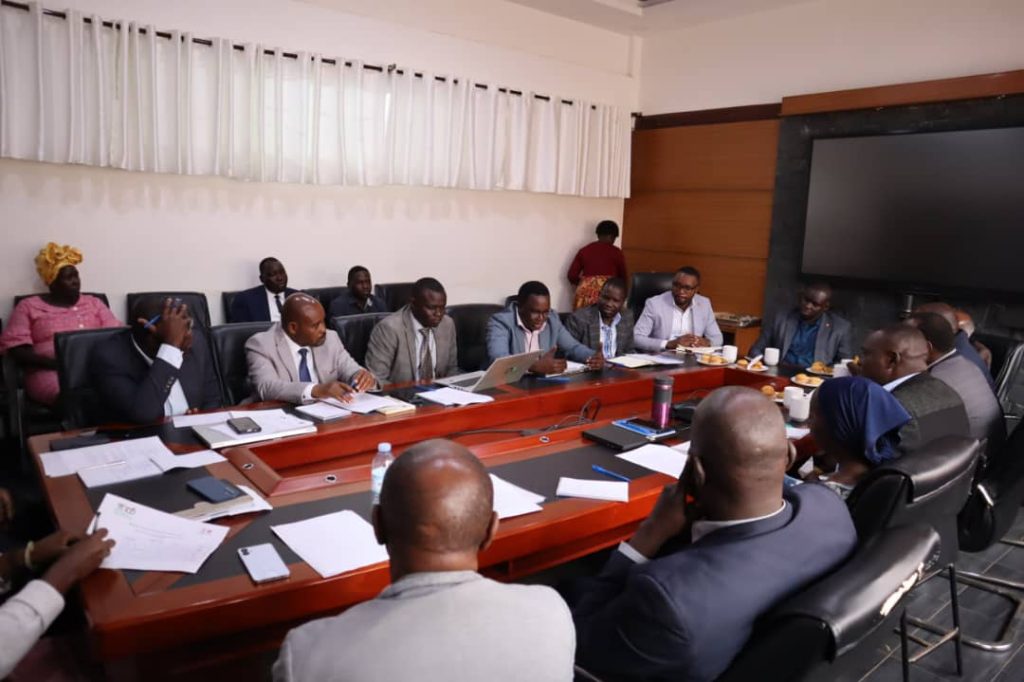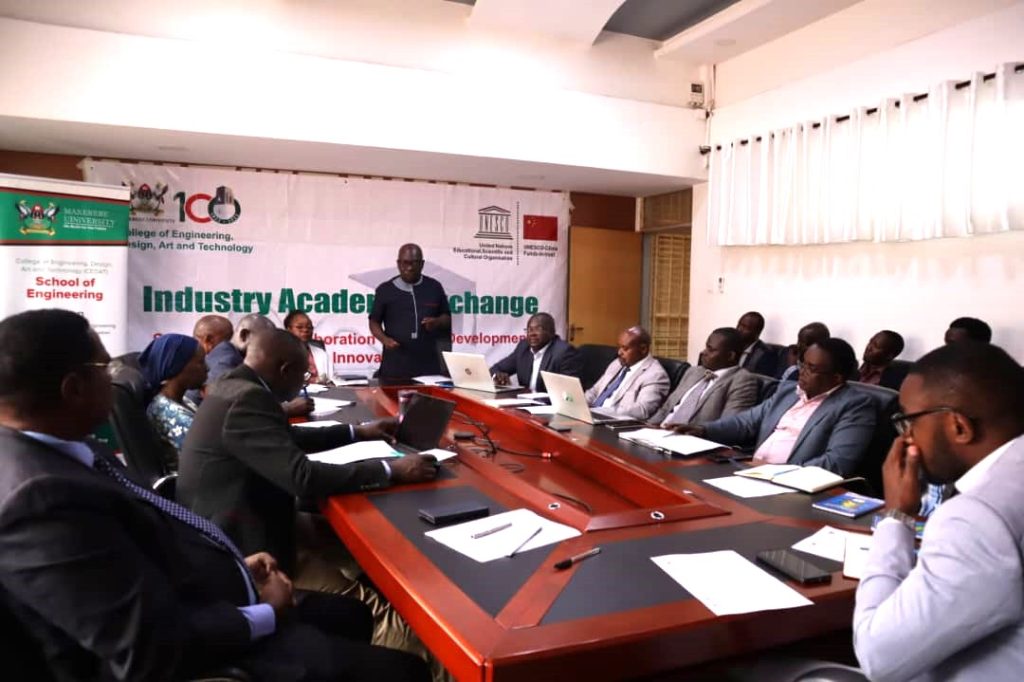Makerere University’s School of Engineering is leading a transformative initiative to reshape Uganda’s engineering landscape through legislative engagement, academic collaboration, and industry integration.
The School, headed by Prof. Dorothy Okello, at the College of Engineering, Design, Art and Technology (CEDAT), recently presented a comprehensive memorandum to Parliament on the proposed Engineering Professionals Bill 2024. The document, developed through extensive consultations with academia and industry, reflects the collective voice of Uganda’s engineering stakeholders.

Following the submission, a high-level meeting was convened on Thursday, July 3rd, 2025 at Makerere University’s CEDAT Boardroom. The gathering brought together officials from the Ministry of Works and Transport, university deans, and representatives from the Engineers Registration Board (ERB) to address key recommendations and matters arising from the parliamentary presentation. The Deans of Various Engineering Schools that were at the meeting included the Universities of Gulu, Muni, Busitema, Kyambogo, Mbarara University of Science and Technology, Uganda Christian University, together with the host, Makerere.
Among the major proposals discussed that was formally opened by the CCEDAT Deputy Principal Assoc. Prof. Kizito Maria Kasule, was the formation of a Forum of Deans ofEngineering Schools, aimed at harmonizing academic standards, fostering joint research, and enhancing policy dialogue across institutions. The Engineering Registration Board (ERB) is expected to provide oversight and legitimacy to the initiative.

Another highlight was the proposed creation of a Bureau of Industry–Academia Linkages, envisioned as a national clearinghouse for technical challenges from industry. The Bureau would channel these challenges into university research, student projects, and innovation programs, bridging the gap between theoretical training and practical application.
Stakeholders emphasized the need for sustainable funding, skilled staffing, and digital infrastructure to support the Bureau’s operations. Key performance indicators would include the number of industry challenges addressed, student projects aligned with real-world problems, and growth in internship and graduate placements.
The meeting concluded with a renewed commitment to aligning engineering education with Uganda’s national development goals, positioning the sector as a driver of innovation, infrastructure, and economic growth.
